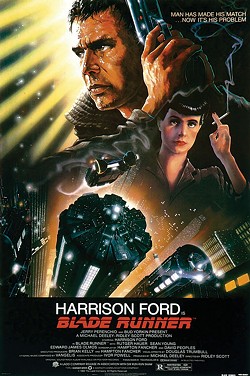[
{
"name": "Top Stories Video Pair",
"insertPoint": "7",
"component": "17087298",
"parentWrapperClass": "fdn-ads-inline-content-block",
"requiredCountToDisplay": "1"
}
]
Two reality-bending episodes of Star Trek: the Next Generation are standouts for me. In the final scene of "Ship in a Bottle," a glowing cube not much larger than a pack of cigarettes contains an entire universe for two digital beings (unaware that they are simulations) to explore. In "The Inner Light," Kamin wakes from a dream in which he was Jean-Luc Picard, captain of a starship — only to discover much later that it was no dream.
Questioning the truth of existence goes back a lot longer than Star Trek, of course. Over 2,000 years ago, the Chinese monk Zhuangzi awoke from a dream in which he was a butterfly. It left him unsure whether he really was a butterfly now dreaming he was a man. French philosopher Rene Descartes wondered if a demon was feeding him fake sensations that he took for the real thing — anticipating the vat-world of the Matrix movies by nearly 400 years. Harrison Ford's character in Blade Runner could never be sure if he was real or an exquisitely fashioned machine. More recently, did the top topple in the final scene of Inception? And for that matter, I bet your dream-self was unaware it was a product of your sleeping brain last night. Are you awake now? Are you real or a simulation? How do you know?
Take the possibility that we're the digital creations of a future generation of humans interested in running computerized "ancestor simulations." Failing a spoiler (perhaps a pop-up saying, "You are a simulation, call this number for more information!") we would be no more capable of knowing the truth than ants in an ant farm. In fact, according to one line of thinking, it's highly unlikely that we're not simulations.
Here's why. From a technical viewpoint, creating a simulated brain in the future doesn't seem to be that much of a stretch. The conscious experience of being alive appears to "emerge" from brains consisting of a few hundred billion interconnected neurons humming along at around a million billion operations per second. That's beyond the capability of today's computers, but surely feasible in the future.
Assuming we manage to survive as a species, future generations will have the power (using a trivial amount of their computing capability) to fashion simulated worlds, not too dissimilar from the creation game SimCity and its variants, only far, far more sophisticated, populated with digital beings unaware of their artificiality. Just as a SimCity player can create limitless scenarios, our descendants will be able to do the same, such that virtual worlds will vastly outnumber real worlds. That means the odds that we're simulations living in a simulated world are way higher than the "real world" alternative.
Supposing you were convinced you that you were most likely a digital simulation — what would you do differently? My guess is, not much. Consider that millions of Buddhists and Hindus believe that appearances are unreal, yet nonetheless they eat, pray and love as others do. Simulated or not, conscious beings still feel pain and pride, anxiety and ecstasy. The way I see it is this: I am unaware of why I act and speak as I do. Neuroscience assures me that it's "me," my unconscious, that informs my feelings, words and deeds, but it might as well be some teenager in the year 2114 playing on her smartphone (watching my clumsy speculations) that give rise to the sensation of being me. And you know what? I don't care. Life is sweet. Thanks, kid!
Barry Evans ([email protected]) has never been the same since reading Ray Bradbury's The Veldt at age 12.
Comments
Showing 1-1 of 1
more from the author
-
A Brief History of Dildos
- Apr 11, 2024
-
Eclipse!
- Mar 28, 2024
-
The Little Drone that Could
- Mar 14, 2024
- More »
Latest in Field Notes
Readers also liked…
-
Trouble on the Line: The Reality Part 2
- Nov 3, 2022

































